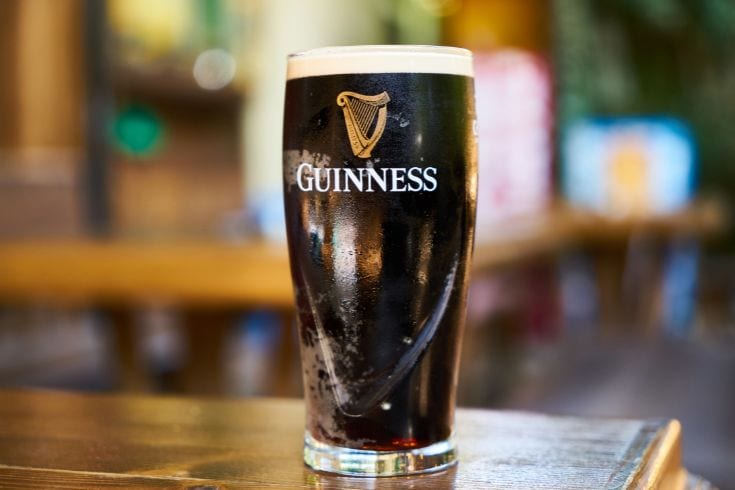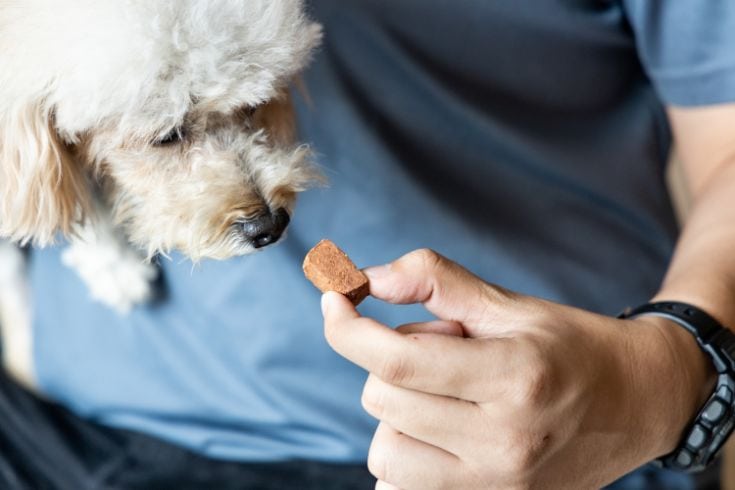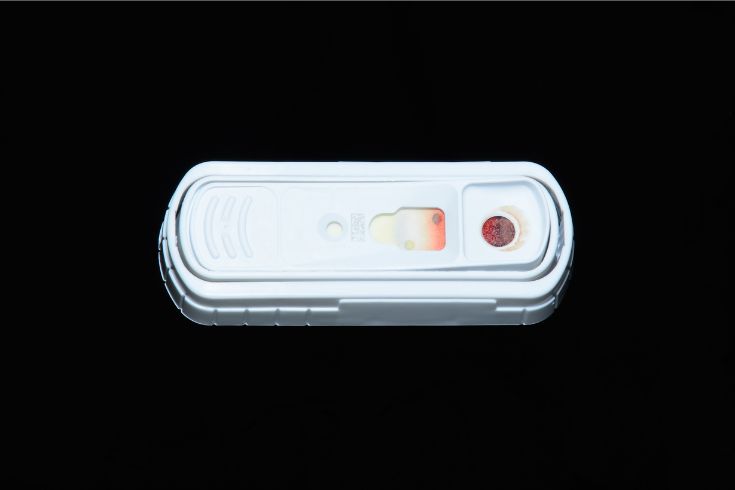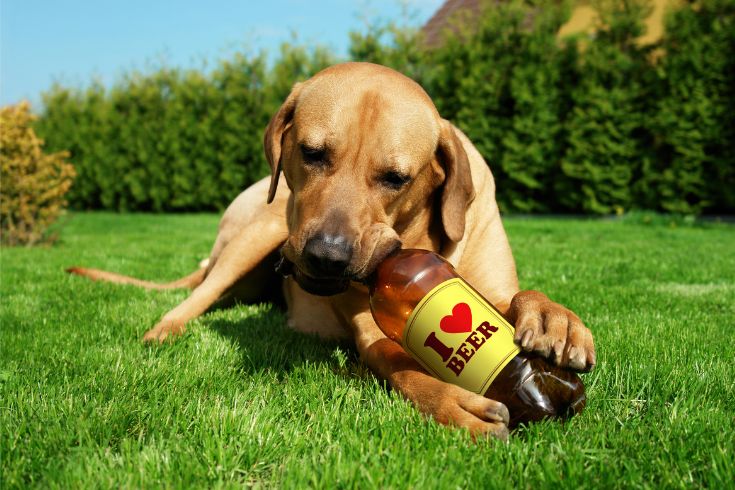Do you have a pup who loves to lounge in the backyard or go for long walks through nature? If this is your life, then chances are you’ve heard of heartworms, and prevention has crossed your mind because of all the mosquitos, fleas, and ticks. But what if I told you that some pet owners swear by an unconventional method: beer?
Believe it or not, many owners claim beer can prevent deadly heartworms in their furry friends. But can it? The answer is “NO!” It may even be more harmful than good to your pet because of its alcohol content. So we’re diving into all the details today. Curious about how Guinness ties into everything? Keep reading and find out!
Introducing the Myth of Beer for Heartworms
We should all know better than to believe everything we hear! One myth among pet owners is that giving beer to their adult dogs with heartworms can prevent infection. This myth suggests that a few gulps of beer, specifically Guinness dark draft, kill the worms & protect your pup from contracting those life-threatening parasites as natural remedies.

Unfortunately, these common types of tales are completely unfounded and not backed by scientific evidence. While alcohol consumption with friends might seem like a good way to unwind after a long day, it simply won’t protect your dog from heartworms.
Exploring the Facts and Fiction Behind Drinking Beer for Dogs
Believe it or not, there’s actually a fair amount of debate around giving your pup a few sips of beer as an age-old home remedy. While the idea of giving your pup a tasty brew like Guinness might seem fun to some people, the fact is that it’s often discouraged because the alcohol content can be dangerous for dogs and have adverse effects.
Also, regular ingestion of beer won’t do anything to help prevent or stop heartworm infestations in dogs. That’s something that needs to be taken care of by using anti-worm medications prescribed by medical professionals.
It may cause some intestinal health issues and health risks and has little to no health benefits. So the next time you’re enjoying a cold one with friends, keep yourself and your pupper safe by sticking to water for Fido!
Types of Heartworm Preventives for Dogs & How They Work
Worms in dogs can be deadly for your furry friend, especially adult worms, so it’s essential to take preventative measures backed with scientific evidence to keep them safe.

While the myth of beer for heartworms may tempt you, it’s essential to stick with proven preventative methods under a veterinary professional’s care for a proper diagnosis of health conditions, correct dosages in preventatives, and what’s best for your dog.
Types of Heartworm Preventatives
A few heartworm preventatives are available for dogs, including medicinal pills & injections. Some only target heartworms, while others may also protect against parasites like fleas & ticks.
Consult with your veterinarian to determine which type of preventative is best for your dog based on their lifestyle, health history, & other factors. You also need to follow a proper deworming schedule and look for common symptoms.
Besides preventative medication, limiting your pup’s time outside when mosquitos are active is important. Mosquitos are the primary carriers of heartworms which can cause heartworm disease or heart disease. Reducing their exposure to these pesky insects can help decrease their risk of infection.
The following are some medicines available through prescription or OTC for heartworm prevention:
- Heartgard Plus (sprinkled on dirt in the yard for eggs)
- Interceptor Plus
- Triheart Plus
- Sentinel Spectrum
- Revolution (Selamectin)
- Trifexis (Spinosad + Milbemycin Oxime)
- Advantage Multi for Dogs and Cats
- ProHeart 6 Injection
- Bravecto Chewable Tablets for Dogs (treats for dogs!)
How These Preventatives Work
Heartworm prevention is essential for every pet owner, as heartworms can cause serious illness, a large range of symptoms, and even death in dogs. Heartworm preventatives are available in different forms, including medicinal pills that taste like a treat for dogs and injections.

Most of these treatments target the immature stages of heartworms, preventing them from developing into adults, which can cause serious damage to your pup’s heart, lungs, and other organs. It’s also worth noting that not all heartworm preventatives are created equal.
It’s worth noting here that heartworm prevention is more effective and safer than treating an infected animal. Treating heartworms can be a long and painful process for dogs, and in severe cases, it may even cause permanent damage to their organs.
Therefore, it’s essential to take action and make sure your pet is safe from heartworms every year by using safe and effective treatments and regular deworming.
What Are Your Options for Protecting Your Dog From Heartworms?
It’s no secret that living with mosquitos this time of year can mean negative effects on your pup. But you don’t need to worry—there are remarkable options for keeping your furry friend safe from heartworm infestation.
Popular medicinal heartworm preventatives require a traditional prescription, though these have proven to be quite effective when used properly and consistently. Some of these come in the form of a tasty treat for dogs, and others are a liquid or pill.
However, suppose this isn’t the best fit for your pup. In that case, there is an alternative method: many pet owners feel equally confident in their local mosquito population by utilizing reputed natural methods, such as apple cider vinegar diluted in water or garlic juice added to meals.

Obviously, it pays to stay informed on what works and think outside of the box when protecting your furry family member—you’ll all be able to rest easier!
Answering the Burning Question – Does Beer Kill Worms in Dogs!?
It’s a question that’s been asked for generations with this age-old myth: Does beer really kill worms in dogs? The short answer is no, not at all. In fact, giving your dog beer can be very dangerous and should be avoided.
Some owners living in areas with mosquitoes active for some of the year even use heartworm preventives to keep their canine family members safe from the parasites.
Although it’s an age-old practice, medicating your dog with beer offers no health advantages and isn’t advised. So the next time you hear someone saying that beer kills intestinal worms in dogs, take it with a grain of salt—because it might be an age-old treatment, but modern science says differently!
How to Make Sure Your Furry Friend Receives Adequate Protection From Heartworms
When protecting your furry friend from heartworms, there are several steps that you can take to ensure their safety. Owners often choose medicinal prevention as an important protocol for areas with mosquitos present throughout the year.
For those more traditional pet owners, however, there are other ways you can help protect your pal. Things like keeping them away from swampy or standing water, not letting them outside at dusk or dawn (prime mosquito activity times), and having their living area well-ventilated are important factors in avoiding these pests.
FAQs

What does beer do for dogs?
Beer can be harmful to dogs as it contains alcohol and isn’t an effective alternative, which can lead to various health issues. Dogs aren’t equipped to handle alcohol because their livers aren’t as effective as the human body in metabolizing it.
Drinking beer can cause dehydration, vomiting, diarrhea, and even coma or death. If your dog drinks beer and starts to show symptoms, make sure you get them supportive care immediately.
How do I permanently get rid of my dog’s worms?
For getting rid of worms in dogs, it is important to understand that appropriate parasite prevention measures are important to maintaining your dog’s intestinal health and avoiding health issues.
Depending on the type of worm infestation, treatment may involve administering medication at home or under veterinary care, regular deworming, or adjusting the dog’s diet and lifestyle. You also need to look for anti-parasitic, antifungal, or any medicinal properties under alternative treatments approved by your vet as a treatment for dogs.
The first step in addressing a worm infestation is to identify the type of worms present in the dog’s system. This can be done through a veterinary examination and fecal analysis. Once the type of worm is identified, a veterinarian may recommend a specific deworming medication, which will target the parasite for elimination.
It is important to follow the prescribed dosage and timing for the medication, as well as any additional dietary or lifestyle recommendations provided by the veterinarian.
Regular check-ups with a veterinarian can also play a crucial role in preventing and detecting worm infestations, as well as other health issues. By staying on top of your dog’s overall health, including their intestinal health, you can help ensure that they stay happy and healthy for years to come.
What can I give my dog if he drinks beer?

If your dog has consumed beer in a large amount, depending on their size, it’s important to act quickly. You should contact your veterinarian immediately and follow their advice. Depending on the severity of the symptoms, they may advise you to induce vomiting or to take your dog to the nearest emergency clinic.
Working alongside a vet, I’ve had to induce vomiting in dogs before with other toxic substances, and it’s not as hard as you think, though pretty traumatizing for both parties. The earlier you act, the more effective the treatment will be.
Conclusion
Even though the old wives’ tale of drinking beer to get rid of heartworms in dogs isn’t true, there are still steps you can take to ensure your pup stays healthy. Your best bet in heartworm prevention is to talk to your vet about what products and programs will work for your four-legged friend.
From topical treatments and chewable tablets, plenty of options are out there to keep those pesky parasites away. Doing a bit of research on this common canine issue is important for all pup parents.
Did you know a dog’s beer is out there specifically for you to enjoy a cold one with your pooch? Have you tried it? What do you think of this myth?
